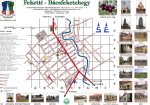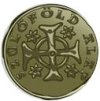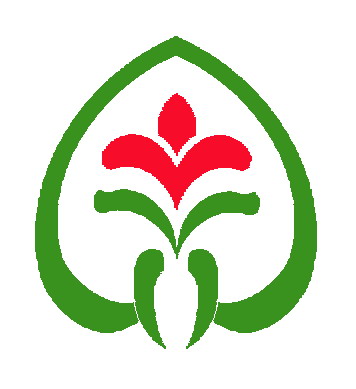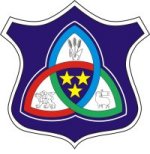Summary
The fact is that the present Culture Association has serious background. In 1866, the Reformed minister, Lajos Kozma Jr. founded the Reading Group. In 1869 the Library was founded, in 1900 the Civil Reading Group, in 1909 the Singers' Group while in 1913 the Hungarian Reformed Singing Group were established. Then the World War I broke out, our money changed from korona to dinar, while the village changed its name from Bácsfeketehegy to Feketic.
In 1936 the Hungarian Readers' Group started its activities and meanwhile the Association of Christian Youth was also formed. After the World war II, from 1946 there were two culture groups working in the same association: the Serbo-Croatian "Nikola Durkovic" and the Hungarian "Petofi Sándor" groups. In 1958 they were unified under one name " Bratstvo-Testvériség" (Fraternity). Although the name should have activated anyone for future activities, the spectaculous shows and results did not come and after a while the Serbo-Croatian group ceased to exist. Despite several attempts to revive it, it still does not exist.
Those who know the village and its history well state that the period between 1971 and 1978 were the hay days of the Culture Association led by a teacher, Ferenc Sárközi. The six sections were highly motivated and very active and drew crowds to join them. Besides the Singing Group, the folk dance groups were popular (already in 1974 they participated in the Folk Dancers and Singers' Contest of Gyöngyösbokréta in Pancova) not forgetting the Drama Club, the Folk Music bands either. The Friday Evenings with their interesting and educative topics were regularly organized and the data collection for a book about the village was started. (It was published in 2000 written by Ferenc Sárközi. The title is "Az ido sodrásában" (In the whirls of Time )). Unfortunately, the regime at that time was not very happy with the Teacher's work, regarded it as "boring" and removed him from his post. It was not only him was replaced, all theother sectionleaders had the same fate except for the Folk Dance Group. It continued working until 1982 led by Eszter Brezovszki.
The other turning point in the history of the Culture Association was 1991 when Vera Tóth Harangozó gathered the eighth graders and formed a folk dance group. The children liked it and the "KÓNYA" group started its life. They participated at the Folk Dancers and Singers' Contest of "Gyöngyösbokréta" each year and had various performances at home and abroad as well. One of the greatest successes was being in the finals of "Ki mit tud?" and being invited to the final show of the "Gyöngyösbokréta" for 6 years continuously. In 2004 this group stopped to work and instead of them there are three other, younger and active folk dance groups in the Association: the youngest are in the "SZIPORKA", the younger schoolchildren are in the "BERKENYE" while the older schoolchildren belong to the MÁKVIRÁG The leaders are: Eszter Pál, Csilla Gogolák és László Pecka. The folk dance groups have their own folk music group, the "ÁRVALÁNYHAJ" led by Zoltán Szakács. They not only play music for the folk dance groups but have their own performances as well.
In 1994 a Drama Club of Amateur Actors was formed, "SOMA" directed by Vera Tóth Harangozó at the beginning but today it is Péter Merkva who leads them. The Drama Club participates in the Contest of Amateur Theatres Contest in Vojvodina each year. The biggest success they had was receiving three first prizes for one play (Tömörkény István : Barlanglakók - István Tömörkény : Cavemen ).
These years the Drama Club of Children was founded as well. The children were led by Júlia Barta, a retired kindergarten teacher. The small group had success but soon transformed itself into the group ofPoetry Readers and from almost all contests they brought prizes back home. The Readers of Poetry commemorate our poet and publicist, József Podolszki (1946-1986, Feketic). Those children who like acting show their talent in the Drama Club "POM-POM" that is led by Andrea Lódi.
The President of the Culture Association has been Károly Pál since 1994. He is also known by initiating the activities that aim at preserving the mother tongue of sporedic Hungarian communities and establishing a prosperous cooperation with the Reformed Church.
We have to mention the Summer Camp "Nagykunsági Alkotó- és Tánctábort" where the participants learn old Hungarian traditions, dances, songs, arts and crafts. The organizer is Eszter Pál.
For the future the Association has great plans: renovating the building, enlarging it, further successful work with the various sections. To be honest, it requires much money. All the sections use the same room now. There is a new headquarters in the progress of building but it has been stopped because of the lack of money.
In these social conditions when the country's economy is in abyss and the political situation is shaky, it is very important to keep our identity and work hard on not giving it up. Let everyone support us and wish us good luck for providing a better future for the next generations.

Preserving the Hungarian traditions and culture is very important for the Culture Association. All the festivals, meetings and other gatherings which were organized in our village had one aim that is to bring back the old days. We are almost every year inviting the Hungarian newspapers to present themselves so to help their distribution. The Culture Association organizes occasional performances. In the memory of Jozsef Podolski, a local poet and publicist, a memorial tablet at the entrance of Culture Centre was unveiled in 1998, and every year the Podolski Days are organized to commemorate him. That is the day when the result of the Podolski journalism competition is announced. The participants had to be younger than 40 years of age and they could compete in writing articles of various genres of journalism.
Sárközi István










